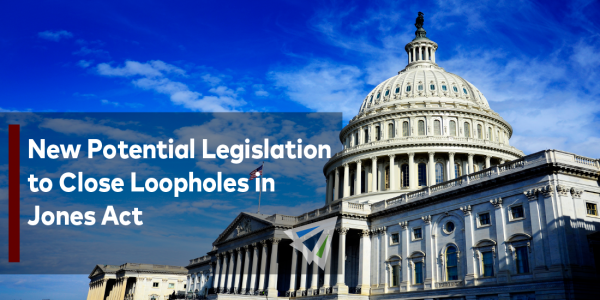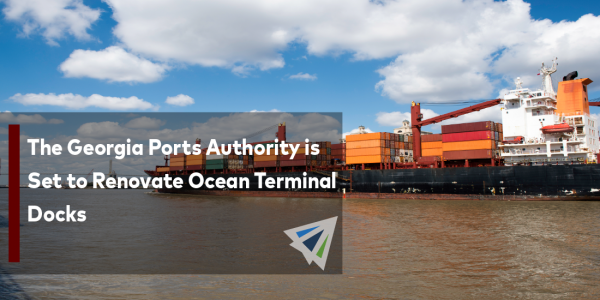Competitive Edge
December 21st, 2022
UPDATE: U.S. and Canada Ports – Number of Cargo Vessels at Anchor
• Vancouver: 41 Vessels at Anchor (+11)
• Savannah: 8 Vessels at Anchor (-3)
• Houston: 20 Vessels at Anchor (+1)
• San Francisco/Oakland: 7 Vessels at Anchor (-1)
• Los Angeles/Long Beach: 8 Vessels at Anchor (0)
• Mobile: 4 Vessels at Anchor (0)
• New York/Newark: 2 Vessels at Anchor (0)
• Charleston: 1 Vessels at Anchor (0)
Note: Count taken on December 20, 2022. This count does not include vessels moored and being unloaded at port docks. Colored numbers in parentheses represents the change from last week over. Data is courtesy of MarineTraffic’s live vessel traffic map.
Have another U.S. or Canadian port you’d like us to track weekly? Let us know!
Takeaways
• U.S. West Coast: WC ports had minimal congestion before it was cool and still do. These trailblazing freight hubs continue to harbor only single-digit vessel queues.
• U.S. Gulf Coast: With 20 vessels queued offshore, Houston is still feeling the hangover from an unexpected volume boost in October. However, we expect that the Gulf Coast port will gradually eliminate vessels from its count over the next few weeks.
• U.S. East Coast: Across the board, EC ports have minimal congestion. Savannah us sustaining week-over-week progress and had now entered single-digits for the first time in several months. The Georgian port’s improvement has not gone unnoticed either. Savannah has been reinstated as weekly calls.
• Canada: We can continue to blame Vancouver’s outstanding issue of berthing delays for its endless sway of congestion.
IMPORT: Asia to North America (TPEB)
Recent Developments:
• Los Angeles and Long Beach will both phase out the option to collect a “Container Dwell Fee” on January 24, 2023. The program, announced in late October 2021, has never once been activated.
• West Coast contract negotiations between the International Longshore and Warehouse Union (ILWU) and Pacific Maritime Association (PMA) remain active. The existing labor contract between the two parties expired July 1.
• Rail congestion is improving as low inbound demand puts less pressure on rail.
Rates: Spot rates are flirting at pre-pandemic levels thanks to waning demand. Additionally, some contracts have been renegotiated to adjust with these market changes and deter shippers from opting for more favorable spot rates.
Space: Space is open.
Capacity: Overcapacity is the current state of this trade. Blank sailings are now typical as a means from carriers to combat this excess market capacity. We expect occurrences of blank sailings to carry over into Q1 2023.
Equipment: Lower volumes have brought relief to equipment deficits. Chassis supply looks to rebound in the new year.
TIPS:
• Book at least two weeks prior to the ready date.
• Blank sailings will continue into the new year. Please plan accordingly.
IMPORT: Europe to North America (TAWB)
Recent Developments:
• An easing market for this trade (and others) has afforded U.S. ports an opportunity to improve on their congestion and wait times.
Rates: Rates have fallen in December thanks to lower demand and carriers adjusting PSS fees. We believe this trend will carry over into the new year barring any surges to demand.
Space: Space to both U.S. coasts have opened up as American port congestion overall eases.
Capacity: Larger vessels have entered the market, including Evergreen’s Tampa Triumph (14,000 TEU capacity), boosting the trade lane’s capacity.
Equipment: The seemingly endless equipment crunch at European ports and inland hubs has improved in pockets.
TIPS:
• Book at least four weeks prior to ready date.
• Strongly consider premium services for no-roll options and improved reliability of cargo.
EXPORT: North America to Asia
Rates: Rates are stable if not slightly decreasing. They are not plummeting in this market like its inbound counterpart (Asia to North America).
Capacity: Capacity remains stable. While blank sailings won’t be as common as they are on inbound lanes, carrier’s preparatory processes for Chinese New Year may lead to some. Please stay advised by your providers for updated information.
Equipment: Chassis and container deficits still exist at inland points, like Kansas City and Memphis, but buy in large, most dry and coastal ports have balanced out their equipment availability, especially the latter.
TIPS:
• Book at least three weeks prior to the time of departure.
• Stay in close communication with your provider and carrier to be aware of any potential developments, like blank sailings, that can affect your shipments.
InterlogUSA Proudly Presents...

Offering insights into breaking news, market trends, our company’s history, and more.
“FreightFM” features short-form video interviews with InterlogUSA’s industry experts.
Did You Know: USTR Extends Existing China Tariff Exclusions an Additional 9 Months
The U.S. Trade Representative’s extension is on 352 products from China that were set to end at the end of 2022.
The products are exceptions made to tariffs on imports from China instated by the previous Administration in 2018. Exempted products include things from rear view mirrors to laminated bamboo.
The USTR last Friday said this recent extension “will help align further consideration of these exclusions with the ongoing comprehensive four-year review.”
You can read more about the extension here.
Freight News
Union Pacific is Pausing Their Use of Freight Rail Embargoes
Last Friday, Union Pacific CEO Lance Fritz sent a letter to the Surface Transportation Board detailing their plan to pause their use of freight rail embargoes – after the embargoes were under scrutinization.
“We are taking a hard look at our use of congestion – related embargoes. To facilitate that hard look, we are immediately pausing any additional embargoes under the pipeline inventory management program we began in November,” Fritz said in the letter.
In 2017, Union Pacific’s use of embargoes – that were to control congestion – increased from a total of five to more than 1,000 to date in 2022, STB data reports. This led shippers to report the embargoes were hindering their operations and adding more supply chain challenges, leading the STB to call the hearing, per CNBC.
The reason, Union Pacific gives, is due to its geographic span, number of yards, customer facilities, and community mix that embargoes are one of the few tools it has to manage and meter customer-controlled railcar inventory levels and alleviate network congestions. They also say the use of those embargoes are a “last resort.”
Highlights of the Week
Port of New Orleans Announces Expansion Plan: Recently the Port of New Orleans announced the formation of a public-private partnership to build a new $1.8 billion container facility on the lower Mississippi River.
This new expansion will serve vessels of all sizes, significantly increase Louisiana’s import and export capacity, as well as creating 17,000 jobs by 2050 – officials at the Port say.
Port of South Louisiana Sees Success: Even amidst the low water on the Mississippi River, the Port of South Louisiana reported an 8 percent increase in tonnage for the first three quarters of 2022 – the American Journal of Transportation reports.
When the declining water levels began back in October, that encouraged the Port of Greater Baton Rouge to “reduce the maximum draft commendation to 41 feet based on low water levels based on the Port’s responsibility.” Thankfully, new rainstorms helped alleviate the worst of the low water problems throughout the Mississippi.
Port of NY/NJ Continues its Hot Streak:
The Port of NY/NJ is confident that it will be the number one port moving the most containers in the U.S. for the fourth straight month – though the official container count is not out just yet – the port tells CNBC.
While some of the reason for the trade being diverted is because of port labor negotiations, the AB5 trucking law and such. Another reason some say is for shippers and cargo carriers to have more options and not limiting to just one coast and not the others.
Missed Today's Webinar? Watch Here Now!
Sign Up for Next Month's Webinar
Our next webinar will be on Wednesday, January 11th!
Keep an eye out for an announcement on topics we’ll be discussing next webinar and potential special guests!
Finally, we would like to hear from you!
If you have any questions or topics you would like our experts
to discuss in future webinars, please let us know!
You can email us at sales@interlogusa.com
Interlog  Insights
Insights
In last week’s newsletter, our experts recapped the fourth quarter of 2022 regarding global transportation.
We also touched on Lunar New Year and what rates, current conditions in China look like during the Lunar New Year.
Plus, transpacific import trade correcting itself to a new normal.
Sign up for the latest insights today!
Sign up for our
industry answers
Our team works to provide valuable, unique, and relevant content to assist you in finding solutions. Sign up now.

